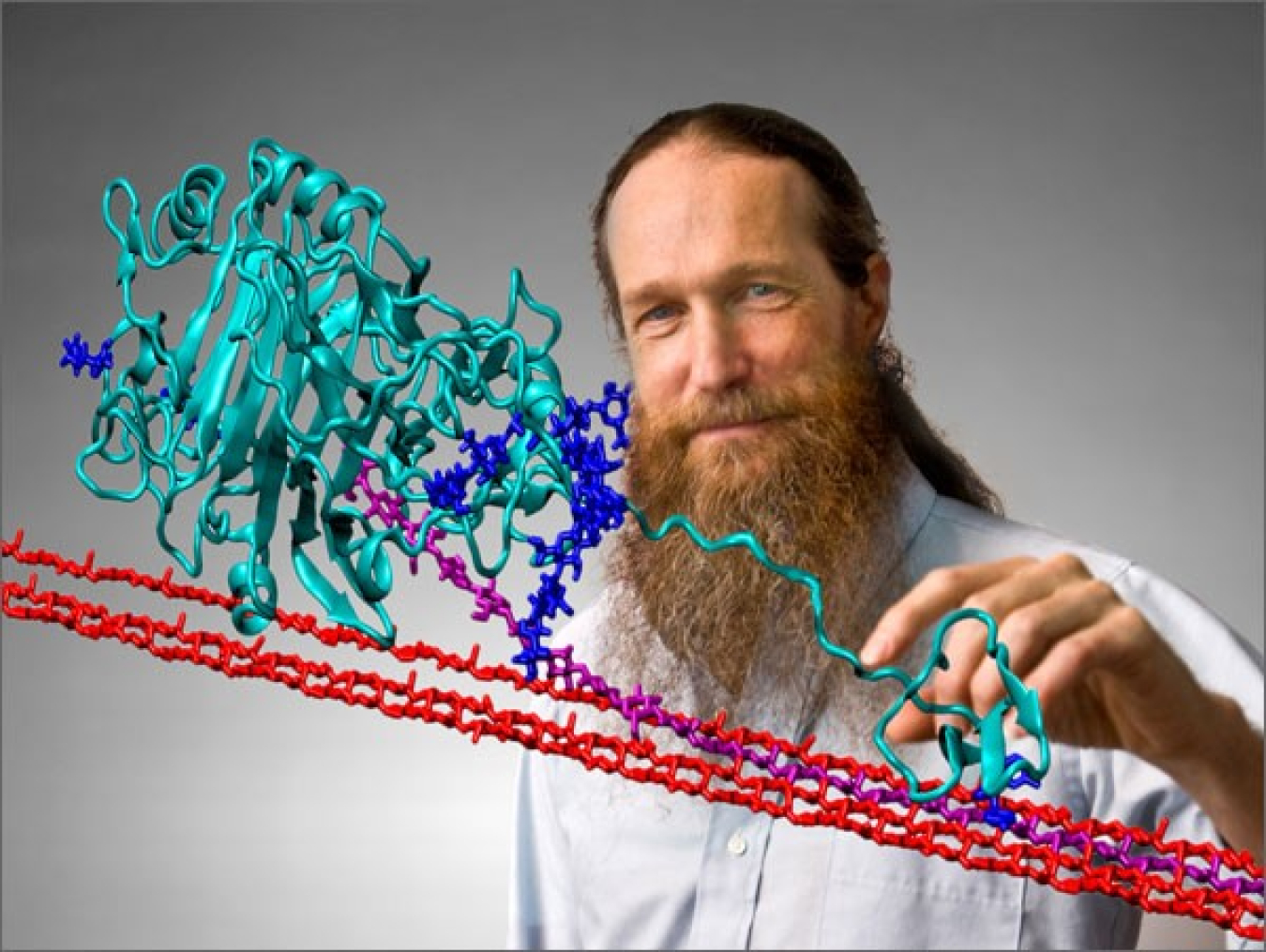
Photo courtesy of Dennis Schroeder | National Renewable Energy Laboratory.
The job of lead chemical/biological engineer is an advanced position in bioenergy, in the engineering and manufacturing career sub-sector. Job seekers with engineering and manufacturing backgrounds or a career in engineering could consider this type of advanced bioenergy job.
Biological/chemical engineers apply their knowledge and understanding of the principles of biochemistry, cellular biology, molecular biology, physics, and engineering to develop, design, optimize, and eventually scale up processes that use living cells, thermodynamics, chemical catalysts, microorganisms, or biological molecules (e.g., enzymes) for the production of biofuels and bioproducts. People in these positions may have careers in bioenergy chemical or biological engineering.
Lead Chemical/Biological Engineer
| Alternate Title(s) | Supervisory Biochemical or Agricultural Engineer Lead Biochemist; Supervisory Physical Scientist |
| Education & Training Level Description | Doctorate in Chemical, Biological, Agricultural, or Environmental Engineering, Biochemistry, Microbiology, Physics, or related field. |
| Experience | 10+ years |
| Job Skills |
|
| Job Profile |
A critical goal for the bioenergy industry is to develop commercially viable and sustainable technologies for converting biomass feedstocks into finished liquid transportation fuels (e.g., renewable gasoline, diesel, and jet fuel) as well as bioproducts (chemicals and materials) and biopower. With a strong foundation in chemistry, the biological sciences, and process engineering, biological and chemical engineers are in a unique position to deliver the key innovations that will drive the bioenergy industry forward. At the senior or supervisory level, chemical and biological engineers lead teams of scientists to improve the economics and efficiency of advanced biomass conversion using thermochemical processes and catalytic cracking, microbial physiology, fermentation, enzymatic hydrolysis systems, and processes monitoring and control. A Ph.D. in chemical or biological engineering or a related field with a focus on polymers, catalysis, thermodynamics, chemical separations, process microbiology, post-harvest operations, ecological restoration, or precision agricultural concepts and tools is highly recommended. Individuals at this level should have demonstrated experience conducting original research that results in major scholarly publications. |
More Advanced Engineering and Manufacturing Jobs in Bioenergy
Related Bioenergy Career Resources
Bioenergy Career Exploration Wheel

